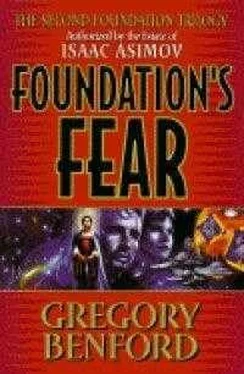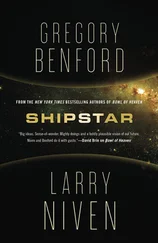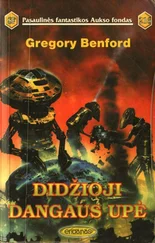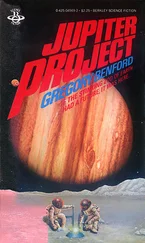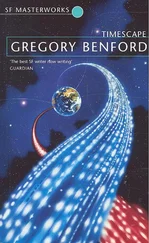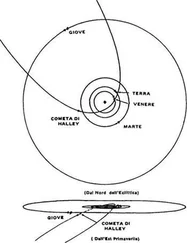Gregory Benford - Foundation’s Fear
Здесь есть возможность читать онлайн «Gregory Benford - Foundation’s Fear» весь текст электронной книги совершенно бесплатно (целиком полную версию без сокращений). В некоторых случаях можно слушать аудио, скачать через торрент в формате fb2 и присутствует краткое содержание. Год выпуска: 1997, ISBN: 1997, Издательство: Orbit, Жанр: Фантастика и фэнтези, на английском языке. Описание произведения, (предисловие) а так же отзывы посетителей доступны на портале библиотеки ЛибКат.
- Название:Foundation’s Fear
- Автор:
- Издательство:Orbit
- Жанр:
- Год:1997
- ISBN:ISBN: 0-06-105243-4
- Рейтинг книги:4 / 5. Голосов: 1
-
Избранное:Добавить в избранное
- Отзывы:
-
Ваша оценка:
- 80
- 1
- 2
- 3
- 4
- 5
Foundation’s Fear: краткое содержание, описание и аннотация
Предлагаем к чтению аннотацию, описание, краткое содержание или предисловие (зависит от того, что написал сам автор книги «Foundation’s Fear»). Если вы не нашли необходимую информацию о книге — напишите в комментариях, мы постараемся отыскать её.
Foundation’s Fear — читать онлайн бесплатно полную книгу (весь текст) целиком
Ниже представлен текст книги, разбитый по страницам. Система сохранения места последней прочитанной страницы, позволяет с удобством читать онлайн бесплатно книгу «Foundation’s Fear», без необходимости каждый раз заново искать на чём Вы остановились. Поставьте закладку, и сможете в любой момент перейти на страницу, на которой закончили чтение.
Интервал:
Закладка:
“So what do we do?” Hari realized that Yugo had said this twice now. He had drifted off into reverie.
“I…don’t know.”
“Add another term for basic instincts?”
Hari shook his head. “People don’t run on instinct. But they do behave like people-like primates, I suppose.”
“So…we should look into that?”
Hari threw up his hands. “I confess. I feel that this line of logic is leading somewhere-but I can’t see the end of it.”
Yugo nodded, grinned. “It’ll come out when it’s ripe.”
“Thanks. I’m not the best of collaborators, I know. Too moody.”
“Hey, never mind. Gotta think out loud sometimes, is all.”
“Sometimes I’m not sure I’m thinking at all.”
“Lemme show you the latest, huh?” Yugo liked to parade his inventions, and Hari sat back as Yugo accessed the office holo and patterns appeared in midair. Equations hung in space, 30-stacked and each term color-coded.
So many! They reminded Hari of birds, flocking in great banks.
Psychohistory was basically a vast set of interlocked equations, following the variables of history. It was impossible to change one and not vary any other. Alter population and trade changed, along with modes of entertainment, sexual mores, and a hundred other factors.
Some were undoubtedly unimportant, but which? History was a bottomless quarry of factoids, meaningless without some way of winnowing the hail of particulars. That was the essential first task of any theory of history-to find the deep variables.
“Post-diction rates-presto!” Yugo said, his hand computer suspending in air 30 graphs, elegantly arrayed. “Economic indices, variable-families, the works.”
“What eras?” Hari asked.
“Third millennia to seventh, G.E.”
The multidimensional surfaces representing economic variables were like twisted bottles filled with-as Yugo time-stepped them-sloshing fluids. The liquids of yellow and amber and virulent red flowed around and through each other in a supple, slow dance. Hari was perpetually amazed at how beauty arose in the most unlikely ways from mathematics. Yugo had plotted abstruse econometric quantities, yet in the gravid sway of centuries they made delicate arabesques.
“Surprisingly good agreement,” Hari allowed. The yellow surfaces of historical data merged cleanly with the other color skins, fluids finding curved levels. “And covering four millennia! No infinities?”
“That new renormalization scheme blotted them out.”
“Excellent! The middle Galactic Era data is the most solid, too, correct?”
“Yeah. The politicians got into the act after the seventh millennium. Dors is helpin’ me filter out the garbage.”
Hari admired the graceful blending of colors, ancient wine in transfinite bottles.
The psychohistorical rates linked together strongly. History was not at all like a sturdy steel edifice rigidly spanning time; it rather more resembled a rope bridge, groaning and flexing with every footfall. This “strong coupling dynamic” led to resonances in the equations, wild fluctuations, even infinities. Yet nothing really went infinite in reality, so the equations had to be fixed. Hari and Yugo had spent many years eliminating ugly infinites. Maybe their goal was in sight.
“How do the results look if you simply run the equations forward, past the seventh millennium?” Hari asked.
“Oscillations build up,” Yugo admitted.
Feedback loops were scarcely new. Hari knew the general theorem, ancient beyond measure: If all variables in a system are tightly coupled, and you can change one of them precisely and broadly, then you can indirectly control all of them. The system could be guided to an exact outcome through its myriad internal feedback loops. Spontaneously, the system ordered itself-and obeyed.
History, of course, obeyed no one. But for eras such as the fourth to seventh millennium, somehow the equations got matters right. Psychohistory could “post-dict” history.
In truly complex systems, how adjustments occur lay beyond the human complexity horizon, beyond knowing-and most important, not worth knowing.
But if the system went awry, somebody had to get down in the guts of it and find the trouble. “Any ideas? Clues?”
Yugo shrugged. “Look at this.”
The fluids lapped at the walls of the bottles. More warped volumes appeared, filled with brightly colored data-liquids. Hari watched as tides swept through the burnt-orange variable-space, driving answering waves in the purple layers nearby. Soon the entire holo showed furiously churning turbulence.
“So the equations fail,” Hari said.
“Yeah, big time, too. The grand cycles last about a hundred and twenty-five years. But smoothing out events shorter than eighty years gives a steady pattern. See-”
Hari watched turbulence build like a hurricane churning a multicolored ocean.
Yugo said, “That takes away scatter due to ‘generational styles,’ Dors calls it. I can take the Zones that consciously increased human lifespan. I time-step the equations forward, great-but then I run out of data. How come? I mine the history some, and it turns out those societies didn’t last long.”
Hari shook his head. “You’re sure? I’d imagine increasing the average age would bring a little wisdom into the picture.”
“Not so! I looked deeper and found that when the lifespan reached the social cycle time, usually about a hundred and ten Standard Years, instability rose. Whole planets had wars, depressions, general social illnesses.”
Hari frowned. “That effect-is it known?”
“Don’t think so.”
“This is why humans reached a barrier in improving their longevity? Society breaks down, ending the progress?”
“Yeah.”
Yugo wore a small, tight smile, by which Hari knew that he was rather proud of this result. “Growing irregularities, building to-chaos.”
This was the deep problem they had not mastered. “Damn!” Hari had a gut dislike of unpredictability.
Yugo gave Hari a crooked smile. “On that one, boss, I got no news.”
“Don’t worry,” Hari said cheerfully, though he didn’t feel it. “You’ve made good progress. Remember the adage-the Imperium wasn’t built in a day.”
“Yeah, but it seems to be fallin’ apart plenty fast.”
They seldom mentioned the deep-seated motivation for psychohistory: the pervasive anxiety that the Empire was declining, for reasons no one knew. There were theories aplenty, but none had predictive power. Hari hoped to supply that. Progress was infuriatingly slow.
Yugo was looking morose. Hari got up, came around the big desk, and gave Yugo a gentle slap on the back. “Cheer up! Publish this result.”
“Can I? We’ve got to keep psychohistory quiet.”
“Just group the data, then publish in a journal devoted to analytical history. Talk to Dors about selecting the journal.”
Yugo brightened. “I’ll write it up, show you-”
“No, leave me out of it. It’s your work.”
“Hey, you showed me how to set up the analysis, where-”
“It’s yours. Publish.”
“Well…”
Hari did not mention the fact that, now, anything published under his name would attract attention. A few might guess at the immensely larger theory lurking behind the simple lifespan-resonance effect. Best to keep a low profile.
When Yugo had gone back to work, Hari sat for a while and watched the squalls work through the data-fluids, still time-stepping in the air above his desk. Then he glanced at a favorite quotation of his, pointed out to him by Dors, given to him on a small, elegant ceramo-plaque:
Minimum force, applied at a cusp moment at the historical fulcrum, paves the path to a distant vision. Pursue only those immediate goals which serve the longest perspectives.
Читать дальшеИнтервал:
Закладка:
Похожие книги на «Foundation’s Fear»
Представляем Вашему вниманию похожие книги на «Foundation’s Fear» списком для выбора. Мы отобрали схожую по названию и смыслу литературу в надежде предоставить читателям больше вариантов отыскать новые, интересные, ещё непрочитанные произведения.
Обсуждение, отзывы о книге «Foundation’s Fear» и просто собственные мнения читателей. Оставьте ваши комментарии, напишите, что Вы думаете о произведении, его смысле или главных героях. Укажите что конкретно понравилось, а что нет, и почему Вы так считаете.
